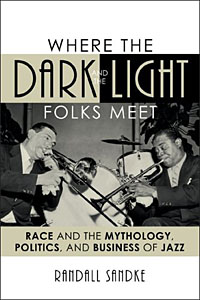 [Editor’s note: This piece is in reply to Howard Mandel’s book review, posted December 20, 2010.]
[Editor’s note: This piece is in reply to Howard Mandel’s book review, posted December 20, 2010.]
Let’s start with what my book is about. It recounts how several jazz writers from the late 1930s (the dawn of jazz writing) to the present day have attempted to impose extra-musical agendas on the music. The book meticulously documents the many ways jazz history and criticism have been distorted to serve ideological ends. The book is neither pro-white nor pro-black; rather it is pro-musician and pro-music.
Among the issues I raise (and Mandel’s review doesn’t address) are: What are the dangers of combining history with social activism? How have both black and white musicians been negatively impacted by stereotypes? Are the rhythmic approaches of African music and jazz fundamentally the same? Was the notion that music performed in Congo Square decisively influenced early jazz a sham? How, if at all, did Jim Crow laws affect the creation of jazz? What was Buddy Bolden’s real contribution to the music? When did white musicians begin playing jazz in New Orleans and why? How did pop tunes of the ’30s influence the emergence of bebop? How does avant-garde jazz relate to the modernist movement? How did the riots of the ’60s shape race relations in America? Why did the ideals of separatism win out over integration? How did jazz go from a self-proclaimed art form to an icon of black achievement? How have jazz writers been complicit in devaluing the importance of innovation in jazz? Is Wynton Marsalis the equal of Charlie Parker or Louis Armstrong given the fact they were innovators and he is not? Has an emphasis on group identity over individualism contributed to a lack of overall creativity within the jazz scene? How did big business dominate the jazz world for twenty years starting in the 1980s? And I’m just up to chapter 7 (out of 12).
Mandel accuses me of creating a “false binary” by asking whether jazz “represents the expression of a distinct and independent African-American culture, isolated by its long history of slavery, segregation, and discrimination. Or, even when produced by African-Americans (or anyone else for that matter) is it more properly understood as the juncture of a wide variety of influences under the broader umbrella of American and indeed world culture?” He attempts to correct me by saying, “it’s not too difficult to entertain both depictions.” But my very next paragraph states: “This is a question that ultimately doesn’t require an either/or answer, as there is truth in both positions.”
According to Mandel, my book “insists that white jazz composers, players, bandleaders and business men — even the famous ones who have made fortunes — have consistently been denied appropriate status in the music.” I defy Mandel to find a single quote in the book that supports this thesis. I’m not even sure what he means by “appropriate status”: money, recognition, work opportunities? I never made any such claim, nor would I.
I can only touch on a few examples of Mandel’s complete misinterpretation of my book in the 500 words granted me by the JJA. Please click this link to see my full response.

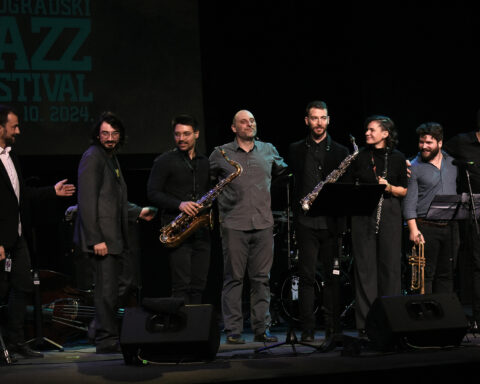

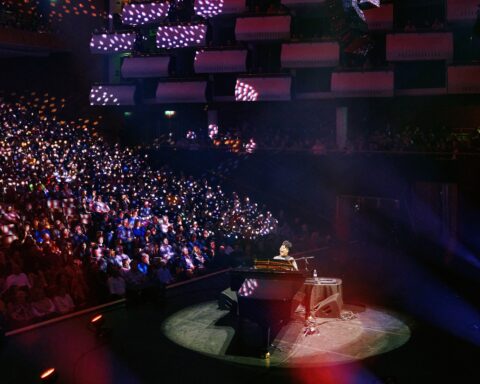
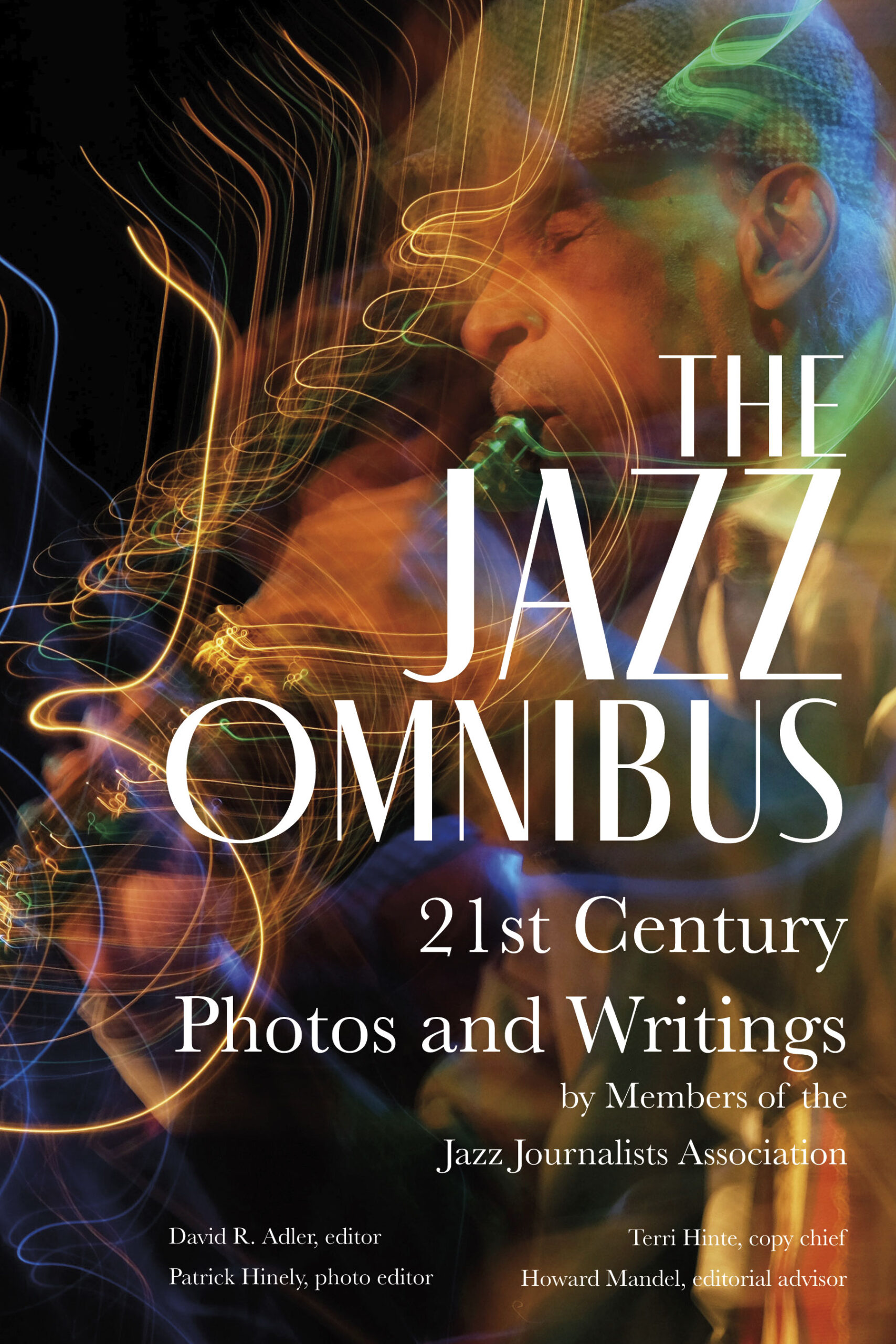
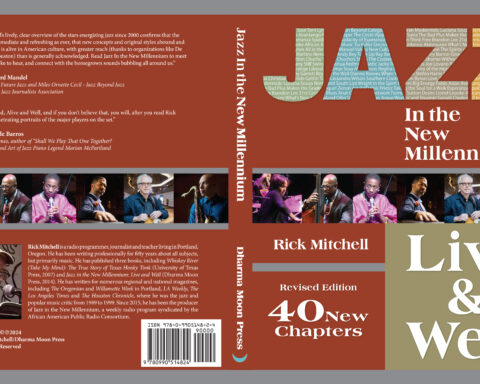
Dear Mr. Sandke:
Please stop hiding behind your perceived persecution by Mr. Mandel and stop pretending that your book "addresses" any of the issues that you claim it does.
Your statement that "there can be truth in both positions," while true, is nowhere to be found in the style or substance of the argument that your book puts forward. If you really want to claim that the book attempts to decisively, thoughtfully or comprehensively "address" any of those questions, then it is an unequivocal failure, as your obvious bitterness, resentment and cynicism towards the jazz industry poisons your presentation to a laughable degree. Your book makes it clear that none of these are academic questions for you, that it's personal, and that is no way to "address" problems that are WAY bigger than you (or me, or Mr. Mandel.)
"Where the Light and the Dark Folks Meet" is an angry and personal rant -- when read as such, there are a few kernels of truth interspersed throughout. But what saddens me the most is that this is the closest that jazz discourse has come, in many respects, to "addressing" these issues, and the explosive vitriol does little to further a reasonable and thoughtful conversation about the issues that you claim to address.
I read your book in the context of a course on "Jazz and Race" at Rutgers, where it was a part of a broader curriculum and was discussed in such a context. But when you came to speak in the class, your long-winded ranting -- claiming that racism no longer exists in America, among other unhelpful hyperbole -- sucked all of the good will out of the room and derailed much of the productive conversations that had built up around it. To paraphrase one of my fellow students (whom you rudely patronized by asking, "did you even read my book?", when he asked a sharp and thoughtful question): "I'd like those hours of my life back, please."
Before anyone else replies in this space, please take a moment to cool the temperature and keep the discussion civil.
Alex,
Just one comment and then I think I'm done. I've had my say, and I don't want to make a career out of commenting on Mandel's review (and I'm sure he doesn't either). First of all, I wish you'd be honest and tell people that you were not present when I made my presentation to Lewis Porter's class. I think it's very sad that a class full of twenty-somethings finds comfort in the idea that racism still abounds everywhere. Someone who challenges that (I believe) outdated notion is viewed as a heretic, and treated accordingly.
I guess you didn't get the part in my book where I argue in favor of integration as opposed to separatism. Integration has become a loaded term (like most surrounding the issue of race). By advocating integration I'm not suggesting a return to the past, or losing one's identity. Rather, I'd like to see a new dialogue on race: one based on equality, and not the tired and unproductive victim-oppressor rut we've been stuck in since the '70s. We've all seen how far that model has taken us in healing the ghettos, improving racial harmony, etc.
My book was intended to get people thinking and talking about subjects we all think a lot about but seldom express, especially across racial lines. Despite what you say, I think it is achieving that goal. I don't believe that Mandel is "persecuting me"; just that he wrote a very biased and uninformative review. You're right that the issues I discuss are bigger than me or anyone, but does that mean that no one is entitled to discuss them? And everybody, by virtue of living in this country, has a personal stake in this debate. There's no way around it. If you feel strongly about my book being out of touch with reality, maybe that will inspire you to write your own book one day.
Now you do bring up a good point: I don't spend a lot of time talking about jazz as a product of an insulated black environment. But as I say in the book, that part has already been extensively covered in a great many jazz texts, and will surely continue to be. My intention was to stress jazz as part and parcel of American culture, as well as the efforts of many authors to deny and distort that obvious fact.
Here's something for you to think about, Alex, and it's purely a practical matter. Does the promotion of jazz as "black music" limit its audience? Do most young Americans consider it irrelevant to their own experience? Do they not feel welcome to participate in it? Who will you be playing for in twenty years? If it doesn't relate to a wider public in a real way (other than as a lifeless object of veneration) then its days are numbered. I know that both you and I don't want it to come to that.
Thanks to you, and everyone else, for hearing me out.
Randy
I'm at a loss to understand how Mr. Sandke, or anyone else, can determine when a jazz critic has an "extra-musical" agenda or what their personal "ideological end" is.
I do know, as a non-American, that I see racism (and sexism and homophobia, too) everywhere I go in the world of jazz south of the border. I'm neither a twentysomething (I wish) nor do I take comfort in it; it's just a matter of fact.
I'd love to hear Mr. Sandke debate a black musician on this instead of continuing to duke it out merely with Howard and Alex in this and other forums. It's a discussion that needs to happen.